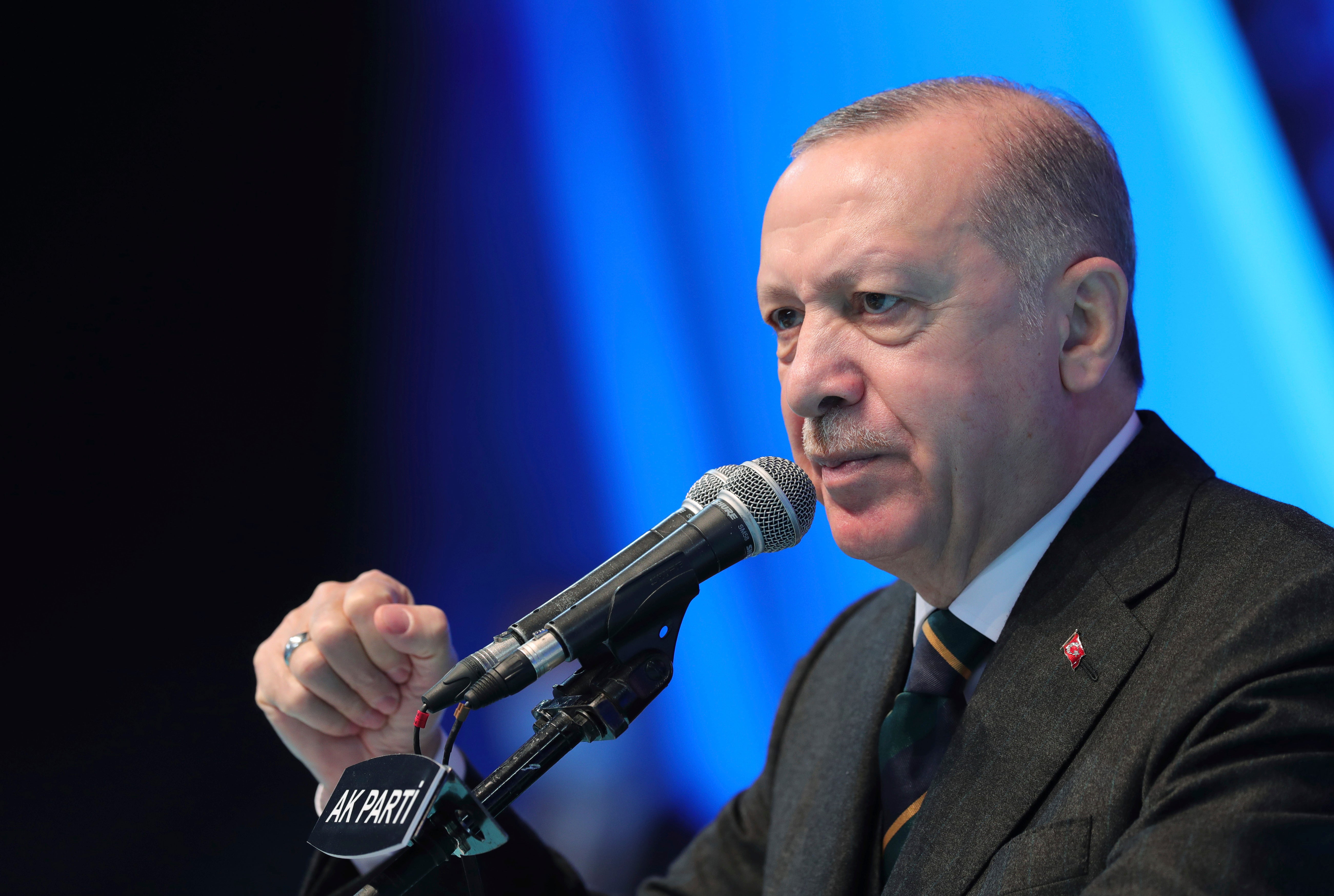Turkey, Libya recommit to contested maritime borders deal
Libya's visiting interim prime minister and Turkish President Recep Tayyip Erdogan affirmed their commitment to a controversial maritime demarcation agreement that has angered Greece and Cyprus

Your support helps us to tell the story
From reproductive rights to climate change to Big Tech, The Independent is on the ground when the story is developing. Whether it's investigating the financials of Elon Musk's pro-Trump PAC or producing our latest documentary, 'The A Word', which shines a light on the American women fighting for reproductive rights, we know how important it is to parse out the facts from the messaging.
At such a critical moment in US history, we need reporters on the ground. Your donation allows us to keep sending journalists to speak to both sides of the story.
The Independent is trusted by Americans across the entire political spectrum. And unlike many other quality news outlets, we choose not to lock Americans out of our reporting and analysis with paywalls. We believe quality journalism should be available to everyone, paid for by those who can afford it.
Your support makes all the difference.The head of Libya s new interim government and Turkish President Recep Tayyip Erdogan on Monday affirmed their commitment to a controversial 2019 maritime agreement that has angered Greece and Cyprus.
Speaking following a meeting in Ankara with Libyan Prime Minister Abdul Hamid Dbeibah, Erdogan pledged to support to Libya's unity, its reconstruction and its military. Turkey would also be sending 150,000 COVID-19 vaccine doses and well as manage a pandemic hospital in Tripoli to help the North African country battle its outbreak, Erdogan said.
Libya’s interim government, which took power last month, is meant to bring together a country that has been torn apart by civil war for nearly a decade. It is also aims to steer through a general election on Dec. 24.
Turkey has been closely involved in Libya, backing the U.N.-recognized Government of National Accord (GNA), based in the capital Tripoli that controlled the west, against the Libyan National Army (LNA), based in Benghazi that controlled the east. Turkey sent military supplies and fighters to Libya, helping to tilt the balance of power in favor of the Tripoli government.
Turkey also signed an agreement with the Tripoli-based government delineating the maritime boundaries between the two countries in the Mediterranean, triggering protests from Greece and Cyprus. Both countries denounced the agreement, saying ti was a serious breach of international law that disregarded the rights of other eastern Mediterranean countries.
“The memorandum of understanding concerning the maritime jurisdiction in the Mediterranean that we signed with our neighbor Libya, has secured the interest and future of both countries,” Erdogan said.
Dbeibah, who has been trying to strike a balance between Turkey and Greece following Athens’ concerns over the maritime deal, also said the deal serves both Turkey and Libya's national interests. He added however, that it was important to start a dialogue that would take into account all involved parties' interests.
Previously, Dbeibah has said his government is willing to establish a joint Libyan-Greek committee to resume negotiations to set the sea boundary between the two countries and demarcate an exclusive economic zone for oil and gas drilling rights.
Erdogan and Dbeibah, who was accompanied by a large delegation, oversaw the signing of five agreements, including concerning the construction of electricity plants in Libya.
The two countries also agreed to take steps to facilitate the return of Turkish companies to complete stalled projects in the oil-rich North African nation, Erdogan said.
Libya was plunged into chaos when a NATO-backed uprising in 2011 toppled longtime ruler Moammar Gadhafi, who was later killed. The country was in recent years split between rival east- and west-based administrations, each backed by different armed groups and foreign governments.